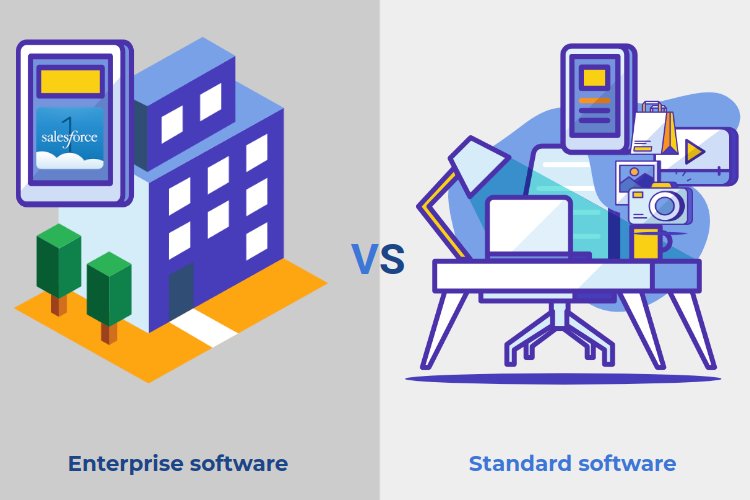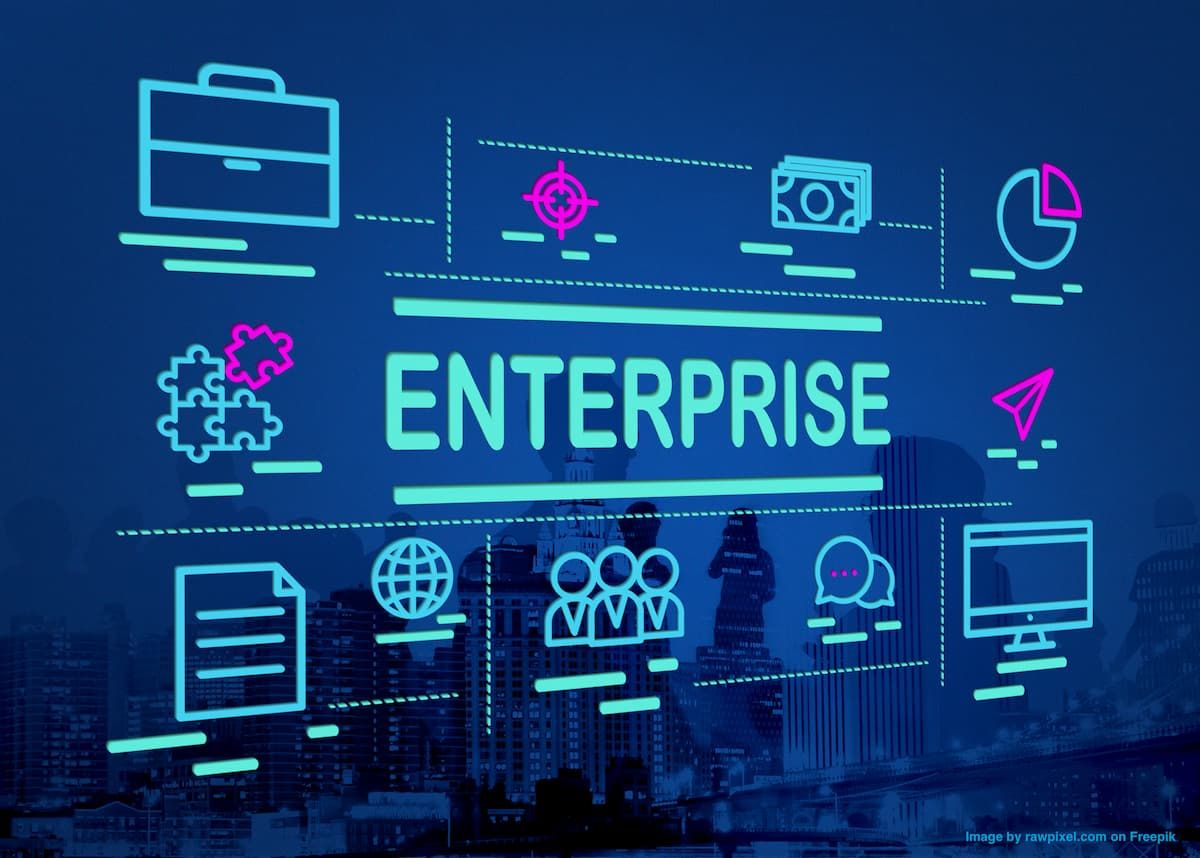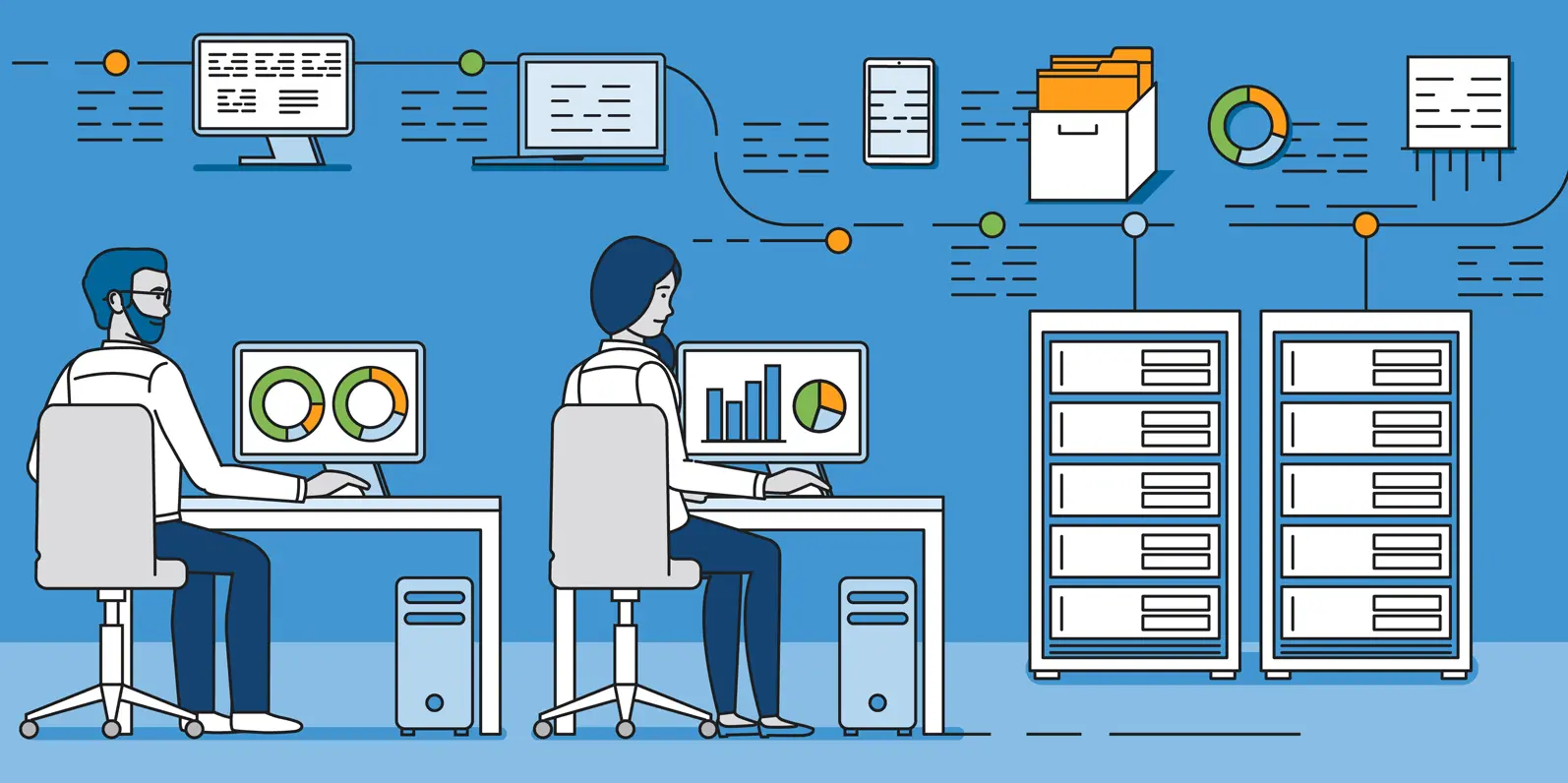What are Enterprise Software Development Services and how is it different from regular software development? How are they scaled and who are the people that need which type of software development? While both types of development share some common ground, the differences can be quite significant when you start digging into the details. Let’s explore what sets them apart and why those differences matter.
1. Scale and Scope: More Than Just a Numbers Game
Regular software development often focuses on building applications for a general audience — think mobile apps, games, or small-scale websites. These apps are designed to be simple, easy to use, and quick to deploy. The goal is to attract and retain as many users as possible, making the software accessible and appealing.
Enterprise software development, on the other hand, is a different beast. Here, we’re talking about building software solutions that cater to the specific needs of a large organization or a group of organizations. These solutions are often complex, designed to handle massive amounts of data, and built to scale as the business grows. An enterprise system might be responsible for managing everything from human resources and inventory to customer relationships and financial transactions. Essentially, it’s software that runs the core operations of a business, and it needs to be robust, reliable, and secure.
2. Customization vs. Generalization
Regular software is often built with a broad audience in mind. Think of your favorite mobile app — it’s designed to meet the needs of millions of users, so it needs to be user-friendly and generalized. It might offer some customization, like changing the theme or rearranging widgets, but the core functionality remains the same for everyone.
Enterprise software, however, is usually heavily customized to meet the specific needs of a company. Each business has unique workflows, processes, and requirements, so enterprise software developers need to tailor their solutions accordingly. This could mean integrating the software with legacy systems, adhering to industry-specific regulations, or building in features that only a particular company needs.
3. Security and Compliance:
When you’re dealing with enterprise software, security isn’t just a nice-to-have; it’s a critical concern. Enterprise applications often handle sensitive data — think customer information, financial records, or proprietary business data. As a result, they need to be built with rigorous security protocols to prevent data breaches and protect against cyber threats.
Compliance is another area where enterprise software development diverges from regular software. Enterprises often operate in highly regulated industries, such as healthcare, finance, or government, where there are strict rules about how data must be handled, stored, and transmitted. Developers need to ensure that their software complies with all relevant laws and regulations, which can add complexity to the development process.
4. Development Lifecycle (Agile vs. Waterfall):
In regular software development, the Agile methodology — which emphasizes flexibility, iterative development, and rapid deployment — is often the go-to approach. Teams work in short sprints, constantly refining and improving the product based on user feedback. This is ideal for consumer-focused apps, where user needs and preferences can change rapidly.
Enterprise software development, however, might not always lend itself well to a purely Agile approach. While some enterprise projects do use Agile, many still rely on a more traditional Waterfall methodology, where each phase of development is carefully planned and executed in sequence. This is because enterprise projects often involve complex integrations, extensive testing, and detailed documentation. In practice, many teams use a blend of both methodologies to balance flexibility with the need for rigorous planning.
5. Maintenance and Support:
Regular software development often includes some level of post-launch support, but updates and maintenance are typically limited to new features, bug fixes, or security patches. For enterprise software, the story is quite different. Maintenance and support are usually much more extensive, as the software is deeply embedded in the daily operations of the business. Enterprise software often requires dedicated support teams, extensive documentation, and continuous monitoring to ensure it runs smoothly.
Additionally, enterprise software updates must be carefully planned and executed to avoid disrupting business operations. Downtime can be costly, so updates and patches need to be rolled out with minimal impact on users.
6. Integration:
In the world of regular software, integration often means making sure your app works across multiple devices or platforms. However, enterprise software takes integration to a whole new level. It needs to seamlessly connect with various other systems and software used by the organization — from legacy databases to third-party APIs, cloud services, and even IoT devices.
Integration in enterprise software is about ensuring that all these different systems can communicate effectively, share data, and function as a cohesive whole. This often involves a great deal of backend work, data mapping, and testing to ensure compatibility and reliability.
Conclusion:
So, what’s the bottom line? While both regular and enterprise custom software development aim to create functional, valuable applications, the context in which they operate makes all the difference. Enterprise software development is typically more complex, requiring a greater focus on customization, security, compliance, integration, and ongoing support. Regular software development, on the other hand, tends to prioritize ease of use, speed to market, and broad appeal.
Understanding these differences is crucial, whether you’re a developer, a business owner, or just someone curious about the world of software. Both types of development come with their own unique challenges and rewards — and recognizing what makes them distinct is the first step to navigating those challenges successfully.




